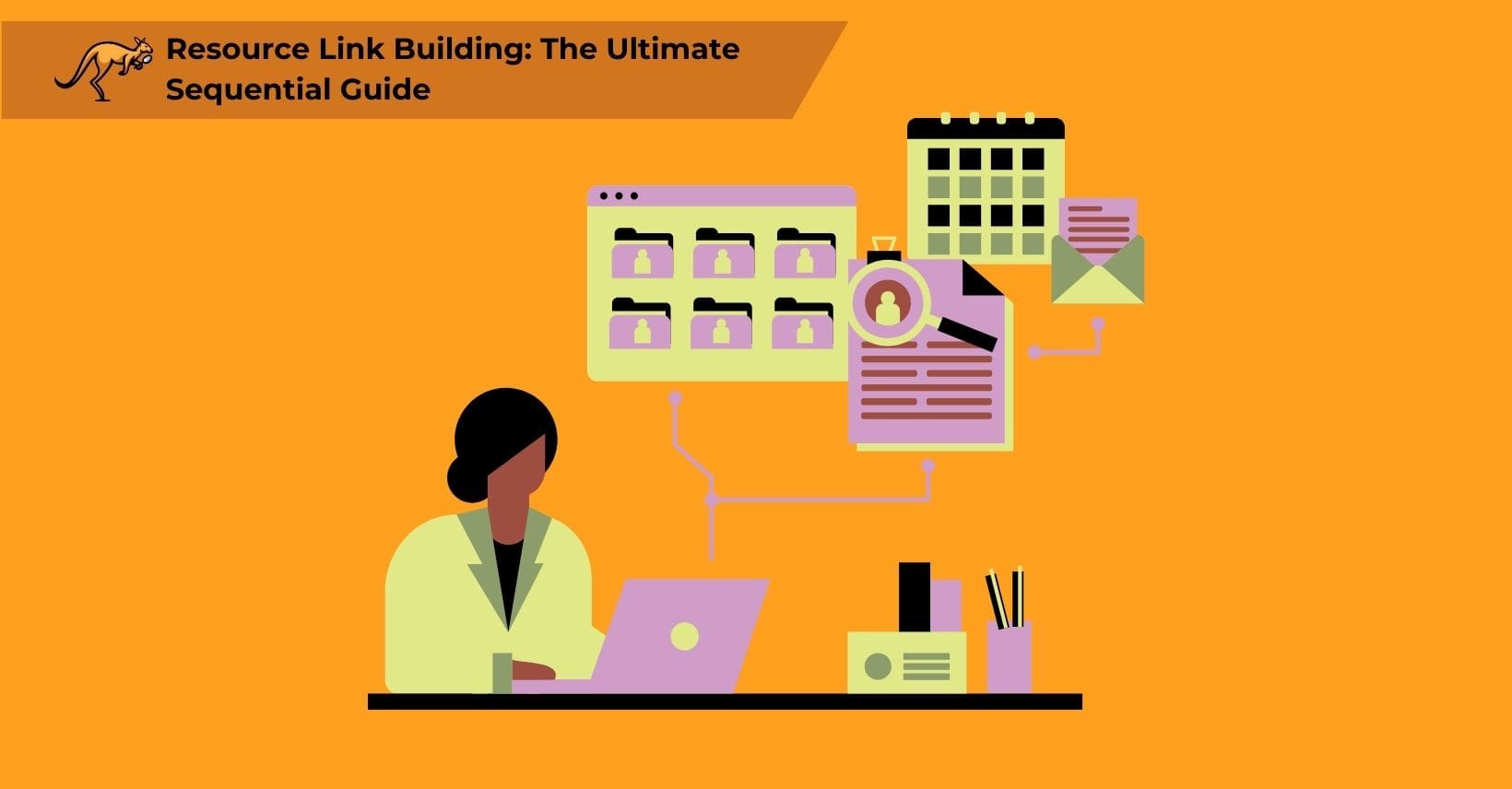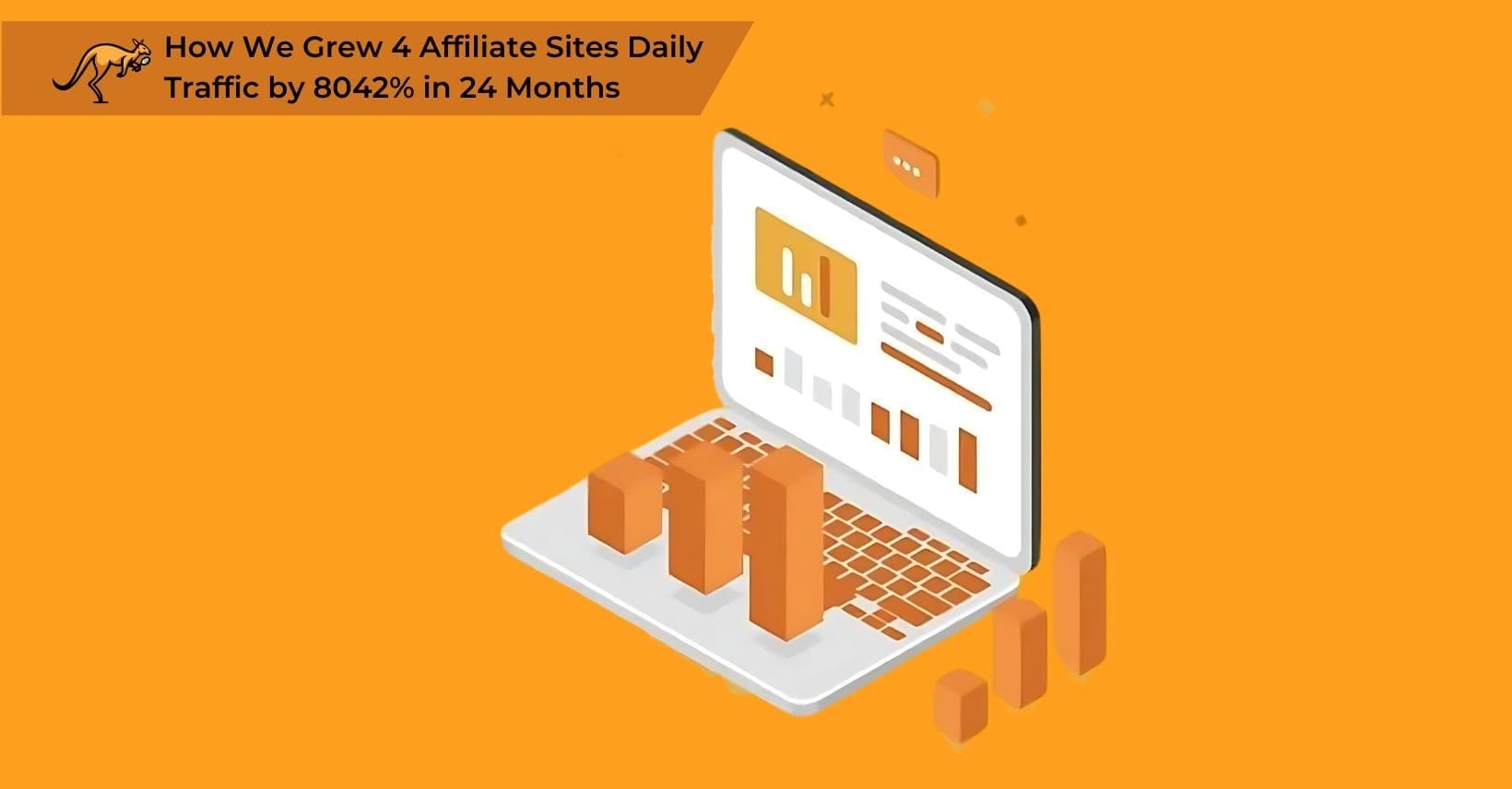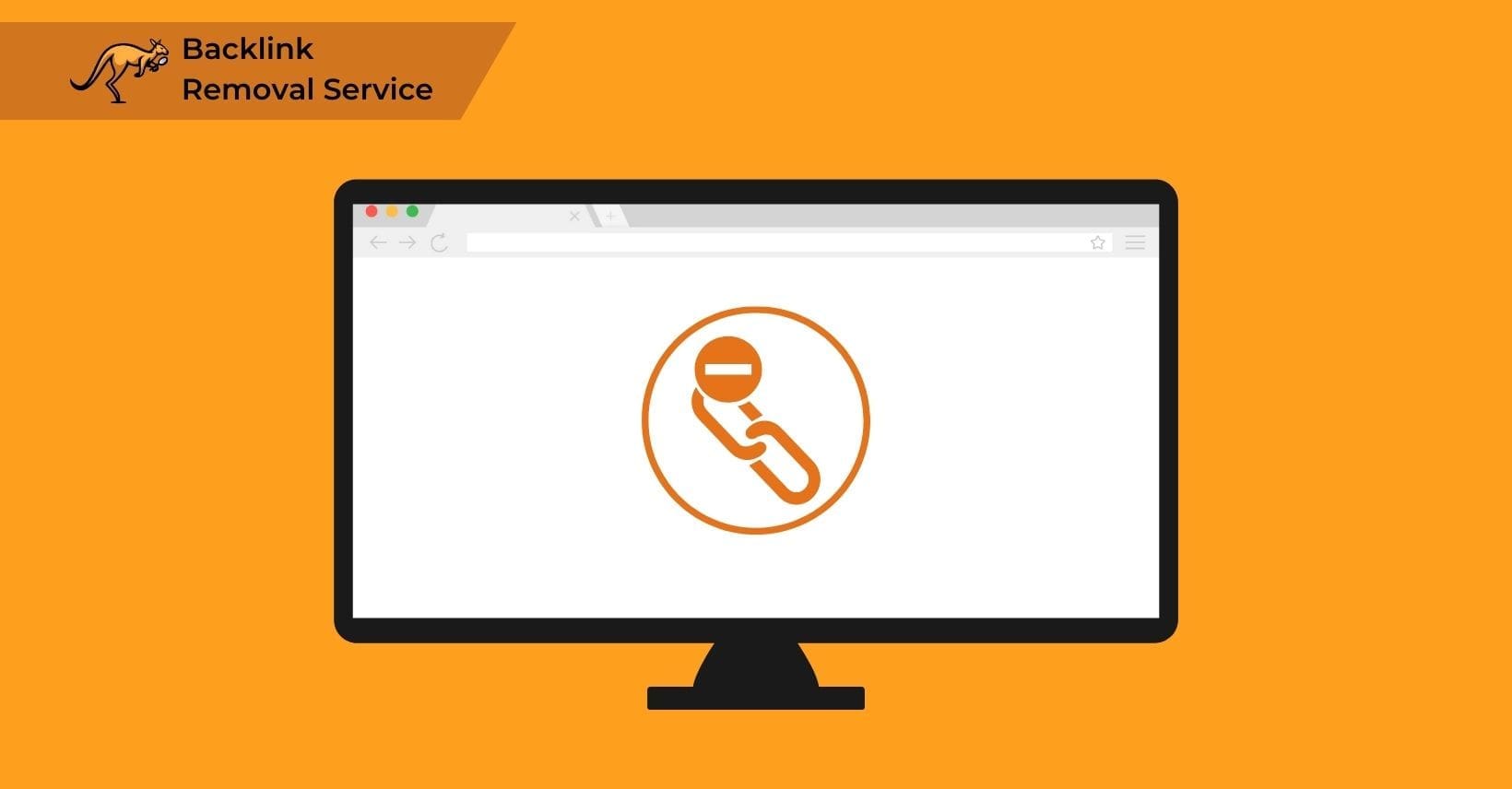Resource pages connect to industrial, educational, or local resources like articles, videos, podcasts, infographics, and comics to enhance user experience.
Some sites simply list links, while others provide explanations for each resource. Earning links from these pages involves being the best resource on your topic, as authoritative resource pages strive to find top-notch materials.
You can easily suggest your material as a good choice for linking.
By examining existing resources, you can also create superior content specifically aimed at resource link building. This approach is highly effective once you find relevant pages.
To tap into this potential, it’s important to understand the foundation of resource page link building.
What Is Resource Page Link Building?
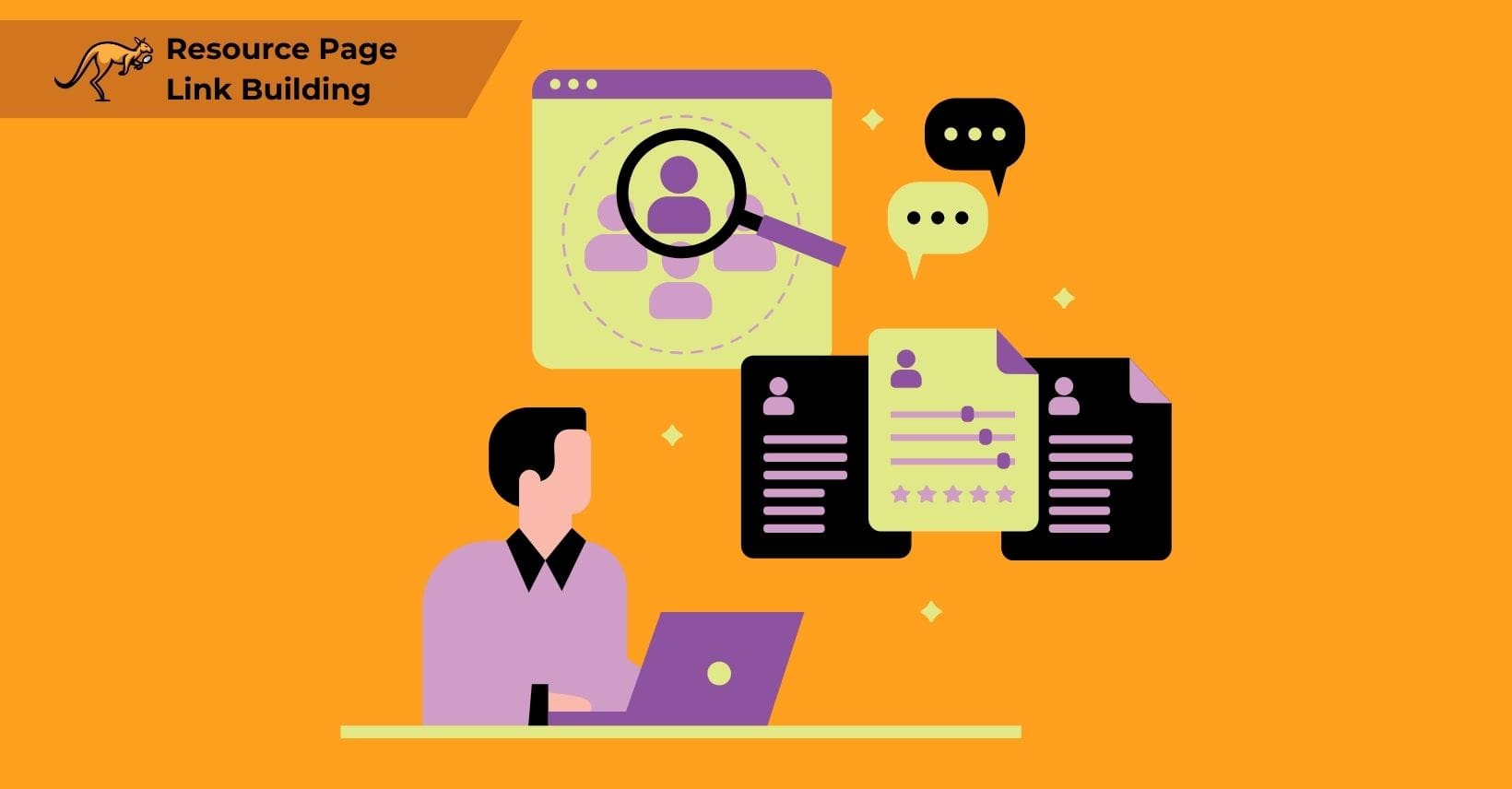
Resource page link building involves getting backlinks from websites that collect and link to useful industry resources, which helps improve your website’s authority and search visibility. Resource page link building creates connections between your content and curated pages that serve as directories for valuable industry information.
It doesn’t require tricks, and some sites even have submission forms for adding your link. By carefully choosing your prospects, you can get links from authoritative, high-quality websites.
This boosts your search engine optimization and helps people find trustworthy information in your niche.
Considering these advantages, it’s clear why many see resource pages as a valuable part of their link-building strategy.
The Benefits of Building Links with Resource Pages
Resource page links deliver significant SEO benefits because they come from authoritative websites that curate quality content, which increases your website’s credibility and search rankings. Resource page links generate higher trust signals than random backlinks because they originate from pages specifically designed to highlight quality resources within your industry.
Resource page links are rarely sketchy. These pages are typically seen as credible, increasing the likelihood of people clicking on your link. What makes them credible? There are two key reasons.
First, resource websites aim to help people rather than sell products. People trust these sites and their links because they don’t have “buy now” buttons, though some might have affiliate links.
Second, trustworthy or renowned sources often develop resource websites. Academic, medical, and other valuable resource collections are usually curated by major, credible organizations in their fields.
When your site appears on relevant resource pages from trustworthy organizations like the NHS, people are likelier to trust and follow those links than if they find a backlink in a random blog post.
To make the most of these opportunities, it helps to know how to get started with building resource page links effectively.
Getting Started With a Resource Page Link Building Strategy
Resource link building is a widely used strategy by SEOs and marketers to obtain high-quality, niche-relevant backlinks.
These backlinks provide valuable benefits for your page. This technique works well if you invest time and resources into content marketing. You should focus on creating quality blogs, guides, and reports.
Good content is essential because webmasters won’t include poor-quality material from external sites. The more quality content you have, the more likely other websites will feature you as a reference for your topic.
When your site has at least 100 articles and ranks for many keywords, consider resource link building. But why focus on this?
Freshness matters, too. Keeping your content updated attracts new backlinks and maintains the value of existing ones. Let’s explore how freshness impacts your SEO strategy.
Freshness
The key reason to start resource page link building is that websites constantly need new resources to refresh their pages. Google favors fresh and updated content, so updating old content and adding new information is essential.
This principle extends to resource pages, which must be updated to meet Google’s Freshness algorithm standards.
By asking websites to update their resource page to include your content, you’re helping them maintain relevance and ease their workload. They will ensure you are credible and beneficial, avoiding any shady links.
Thus, they will review your website, traffic, and content to verify value. Before beginning resource page link building, ensure your site is a high-quality resource.
With a solid foundation, reaching out to secure resource links becomes much simpler.
Outreach for Resource Link Building Opportunities is Easy
The second reason to start with resource link building is its simplified outreach process.
Many websites offer contact details to feature your resources. Be friendly and clear about your niche in the email subject line to increase your chances of gaining valuable links from minimal outreach efforts.
This method is attractive because link-building outreach is often frustrating and time-consuming. Finding the right person to share your links typically takes a long time.
While you still need to find resource pages and create useful content, writing informative guides makes resource link-building easier than guest posts.
Ready to dive into the process? Here’s how to start building backlinks with resource page link building.
How to Start Building Backlinks with Resource Page Link Building: Step By Step
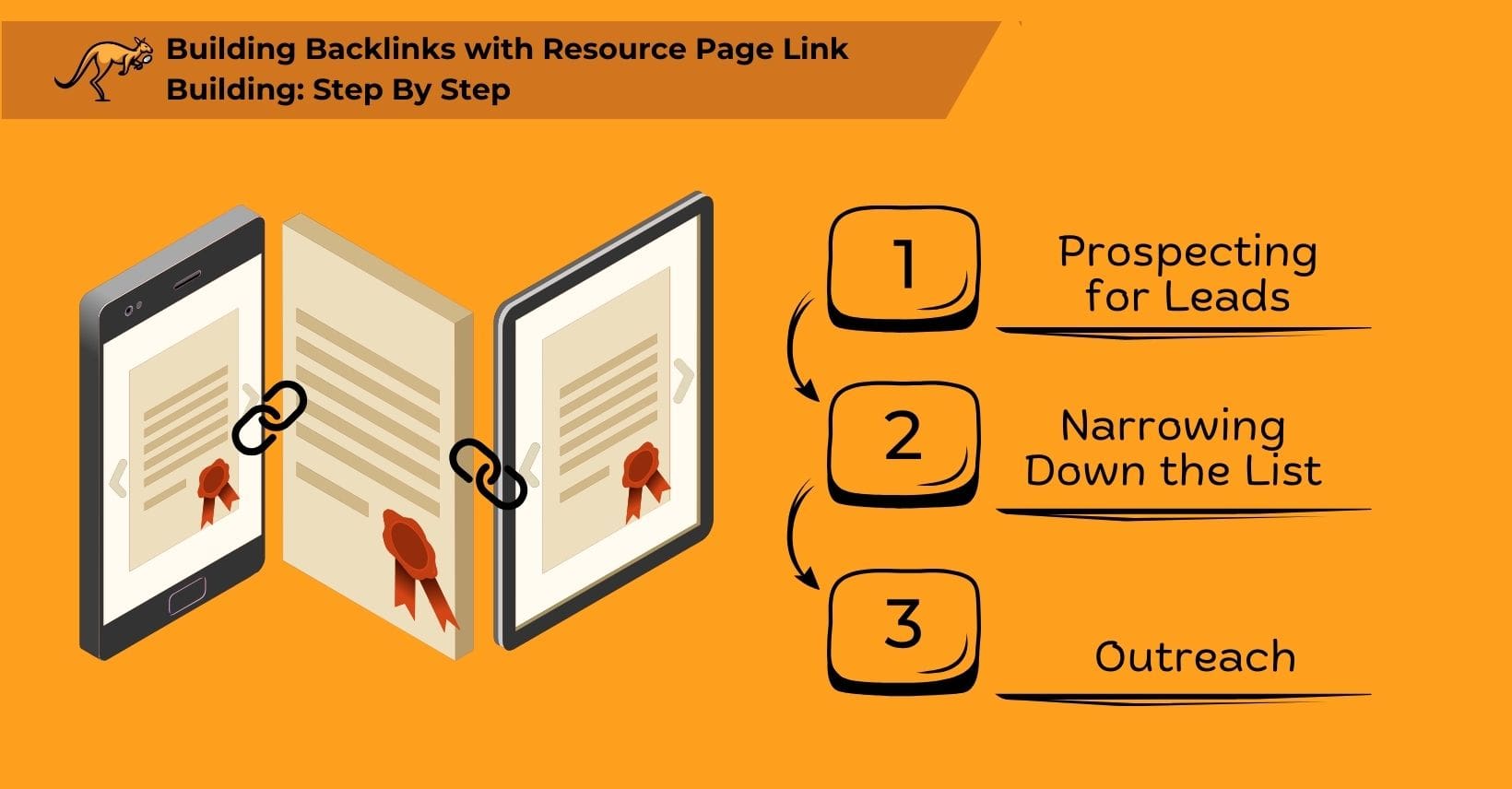
Starting with resource link-building is straightforward, especially if you use link-building tools such as SEO software for prospecting and email outreach platforms for communication, which simplify the process when you have valuable resources on your website..
If your content is already in place, this method is an easy way to build high-quality backlinks. The success of this approach depends on the quantity and quality of your website’s resources.
A website with abundant, high-quality information will be easily included on chosen resource pages because resource page curators seek content that genuinely helps their audience. You should create comprehensive guides, original research, or educational content that solves specific problems in your industry, as these formats attract resource page links by providing clear value to readers.
Let’s explore how to get backlinks from top resource pages step by step, leading us to the next crucial phase in our strategy: identifying and engaging potential leads.
Step 1: Prospecting for Leads
Prospecting is the first step in creating resource links. Most resource pages have common patterns, making finding resource link-building opportunities in your area easier. Google Search Strings provide the most effective method for discovering relevant resource pages, which you can find by using search operators like “keyword + inurl:resources” or “keyword + useful resources” to identify pages that match your niche.
Google Search Strings is a great place to start. Simply edit any of these strings to your desired keyword and enter them into Google search:
- Keyword “best resources”
- Keyword “best blogs”
- Keyword inurl:resources
- Keyword” useful resources”
- Keyword intitle:links
- Keyword “helpful links”
- Keyword intitle:resources inurl:links.html
- Keyword inurl:.com/resources
- Keyword inurl:resources intitle:resources
- Keyword intitle:links inurl: resources.html
- Keyword inurl:.com/resources
Sometimes, your keyword might be too specific, resulting in few search results. This can occur if your niche is very small without dedicated resource pages.
Don’t worry; just search harder. Use the “~” search operator to find pages related to your main keyword. Your outreach might need more effort but will still enhance your backlink profile.
Search strings are the best way to find relevant resource pages, providing a large list of potential links for your niche.
Once you have this list, the next step is to refine it to ensure the best opportunities for your efforts.
Step 2: Narrowing Down the List
Once you have compiled a list of resource pages, it’s time to evaluate each opportunity by checking for DoFollow links and examining organic traffic metrics. You should assess each resource page based on its domain authority, relevance to your niche, and whether it provides DoFollow links that pass SEO value to your website.
Check if the website provides a DoFollow link, as this type of link helps with organic rankings on search result pages.
Navigate to a potential resource page, right-click on the link, and select “Inspect.” This will open a window with the website code and highlight the link’s source code. Look at the rel=”” portion.
If you see “nofollow,” “sponsored,” or “UGC,” the link is Nofollow and does not pass link juice. Consider the organic traffic of the pages you examine.
Reaching out to a resource page with no visitors won’t help much, even with a great conversion rate. Higher organic traffic means Google trusts the site more.
For beginners, start with domains with at least 500 organic visitors per month, according to your preferred SEO tool.
As you refine your list, pay attention to the types of sites that might not be worth your effort.
Site Types To Avoid
Avoid spam pages and link exchange web pages. Resource pages asking for backlinks in exchange for inclusion violate Google’s quality guidelines, and you don’t want to be associated with these sites.
Steer clear of pages requiring payment to feature your link. However, this is common; it’s risky and goes against Google’s rules on buying or selling links that pass PageRank.
If you encounter a resource page with many broken links, remove it from your list. Broken links indicate poor maintenance and suggest the page is not valuable for link building.
To take your efforts further, knowing how to connect effectively with site owners is crucial.
Step 3: Outreach
Once you have a list of validated prospects, you can begin your outreach effort by contacting page owners through provided contact methods, which typically involves a simple email highlighting your relevant content. This process is usually straightforward because resource pages often include a way to contact the person in charge and offer a resource link.
If the resource page lacks a clear contact path, research is necessary to find the blog’s site owner. Start by looking at the page’s author or identifying someone who manages the blog.
It’s important to understand that most prospects won’t respond, not because your content isn’t good, but because they are likely busy. Your emails might not be a priority.
Sending a follow-up after a week or two can be effective. While most resource page prospects might not result in links, the success rate for these pages is usually higher than cold contacting other types of pages for backlinks.
Are you curious about optimizing your link-building? Discover how link-building agencies can enhance your efforts next.
How Link-Building Agencies Enhance Your Resource Link-Building Efforts
Link-building agencies are key to boosting your resource link-building efforts. Resource page link building companies bring expertise, resources, and pre-established relationships that accelerate your link acquisition process while maintaining quality standards that individual efforts might struggle to achieve.
These agencies find valuable linking opportunities, create effective outreach strategies, and offer scalability for large-scale projects without losing quality.
With access to advanced tools and databases, they identify the best resource pages for your niche, saving time and effort. Their connections with website owners and editors also speed up and increase link placements.
For a reliable partner to enhance your link-building efforts, find out why Searcharoo is your ideal choice.
Why Choose Searcharoo as Your Resource Link Building Partner?
Choosing Searcharoo for link building brings key advantages that are vital to your SEO success. Searcharoo aligns strategies with your business goals, ensuring focused and effective efforts. We values transparency, informing clients with regular updates and detailed reports. With a proven record and years of SEO experience, Searcharoo consistently delivers impactful results. We uses only ethical SEO practices, protecting your site’s reputation and search engine ranking. Partnering with us means working with a team dedicated to your growth and using resource link-building to boost your online authority and presence.
Considering these benefits, it becomes clear how Searcharoo’s approach can significantly impact your business. Now, let’s see what makes this partnership truly valuable.
Resource Link Building: What We’ve Learned
Resource page link building improves SEO performance by providing high-quality backlinks from authoritative websites, which signals credibility to search engines and helps your pages rise in search rankings. Resource page link building outperforms many other link building strategies because it connects your content with pages specifically designed to curate quality resources, resulting in contextually relevant links that search engines value more highly.
If you can get a resource page to host a link to your page, then the amount of organic traffic you will get from search results can be enormous.
Of course, you will have to put in the time to create good content, but if you are not making good content, you will probably struggle to get a good conversion rate even if your page has a large number of search hits.
If your page has valuable content, you can search for a resource page to which you might want to link and reap the benefits.
